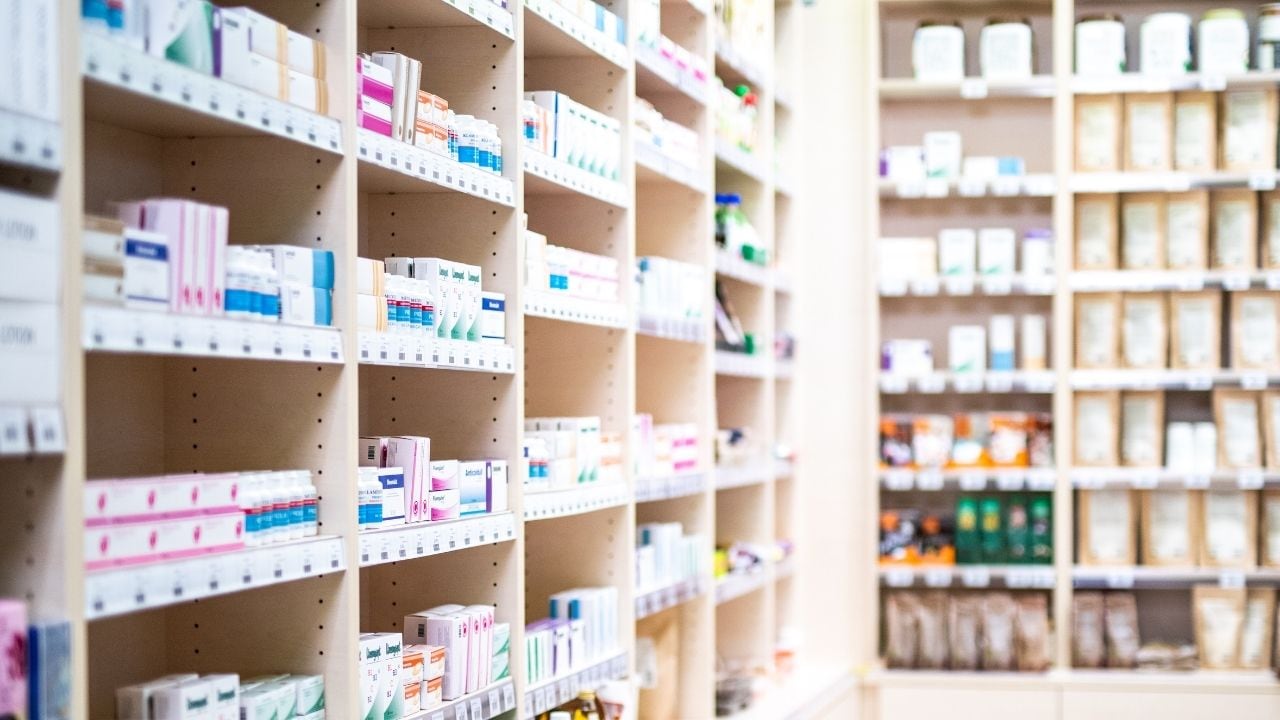What is the story about?
Pharma stocks were trading with gains on Thursday, October 9, after a Wall Street Journal report stated that the Donald Trump administration is not planning to impose tariffs on generic drugs from foreign countries.
The US has been concerned around the dependence on foreign manufacturing for pharmaceuticals and active pharmaceutical ingredients APIs. Generics supply 90% of the drug volumes in the US, the report added.
Generics make up nearly 90% of all drug volumes in the US, and India is the backbone of that supply — accounting for up to 50% of generic prescriptions and nearly half of all US FDA drug approvals.
India also hosts 650 US FDA-approved manufacturing sites, the largest outside America, and supplies around a quarter of all APIs used in the US By contrast, China provides up to 90% of certain critical APIs.
While Section 232 tariffs was being looked at— typically used to protect national security — it is not currently actively under discussion as of now.
Indian-made generics cost one-fifth or even one-eighth of what it takes to produce in the US or Europe.
They are between 80% – 90% cheaper than branded drugs, with margins between 10% – 20%. Tariffs on generics would push up prices, make production unviable, and risk drug shortages in the US healthcare system.
Building alternative supply chains domestically would take years and significantly raise costs — a risk the Trump administration seems unwilling to take right now.
The focus has shifted to branded and patented drugs.
Since September 2025, the US has imposed a 100% tariff on branded pharma imports — unless companies invest in American manufacturing.
And pharma giants are responding fast: Pfizer struck a deal to lower Medicaid prices in exchange for tariff relief. Eli Lilly is investing $27 billion, J&J is pumping in $55 billion, while Novartis and Roche have also signed commitments to the tune of $23 billion and $50 billion respectively over the next few years.
Indian firms, too, are stepping up — IPCA Labs has partnered in Puerto Rico, Lupin announced a $250 million plant in Florida, and Aurobindo acquired Lannett for $250 million, adding a USFDA-compliant facility.
Most constituents of the Nifty Pharma index are trading with gains led by shares of Aurobindo Pharma, which are up nearly 4%, Lupin, which are up 3% and Piramal Pharma, which are trading with gains of 2%.
Also Read: Tata Elxsi Q2 Results: Stock gains on hopes of revenue growth after two quarters of decline
The US has been concerned around the dependence on foreign manufacturing for pharmaceuticals and active pharmaceutical ingredients APIs. Generics supply 90% of the drug volumes in the US, the report added.
Generics make up nearly 90% of all drug volumes in the US, and India is the backbone of that supply — accounting for up to 50% of generic prescriptions and nearly half of all US FDA drug approvals.
India also hosts 650 US FDA-approved manufacturing sites, the largest outside America, and supplies around a quarter of all APIs used in the US By contrast, China provides up to 90% of certain critical APIs.
While Section 232 tariffs was being looked at— typically used to protect national security — it is not currently actively under discussion as of now.
Why Are Generics Spared?
Indian-made generics cost one-fifth or even one-eighth of what it takes to produce in the US or Europe.
They are between 80% – 90% cheaper than branded drugs, with margins between 10% – 20%. Tariffs on generics would push up prices, make production unviable, and risk drug shortages in the US healthcare system.
Building alternative supply chains domestically would take years and significantly raise costs — a risk the Trump administration seems unwilling to take right now.
Where Is The Trump Administration Focused On?
The focus has shifted to branded and patented drugs.
Since September 2025, the US has imposed a 100% tariff on branded pharma imports — unless companies invest in American manufacturing.
And pharma giants are responding fast: Pfizer struck a deal to lower Medicaid prices in exchange for tariff relief. Eli Lilly is investing $27 billion, J&J is pumping in $55 billion, while Novartis and Roche have also signed commitments to the tune of $23 billion and $50 billion respectively over the next few years.
Indian firms, too, are stepping up — IPCA Labs has partnered in Puerto Rico, Lupin announced a $250 million plant in Florida, and Aurobindo acquired Lannett for $250 million, adding a USFDA-compliant facility.
Most constituents of the Nifty Pharma index are trading with gains led by shares of Aurobindo Pharma, which are up nearly 4%, Lupin, which are up 3% and Piramal Pharma, which are trading with gains of 2%.
Also Read: Tata Elxsi Q2 Results: Stock gains on hopes of revenue growth after two quarters of decline





















